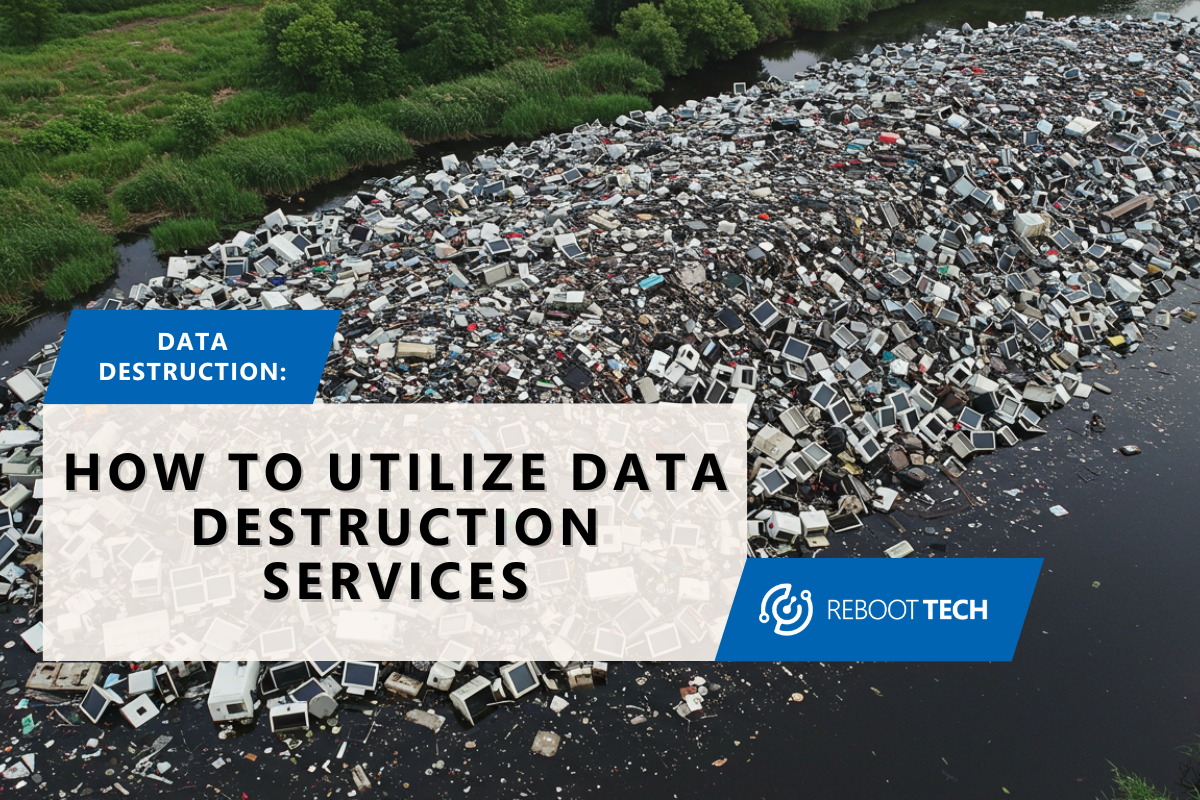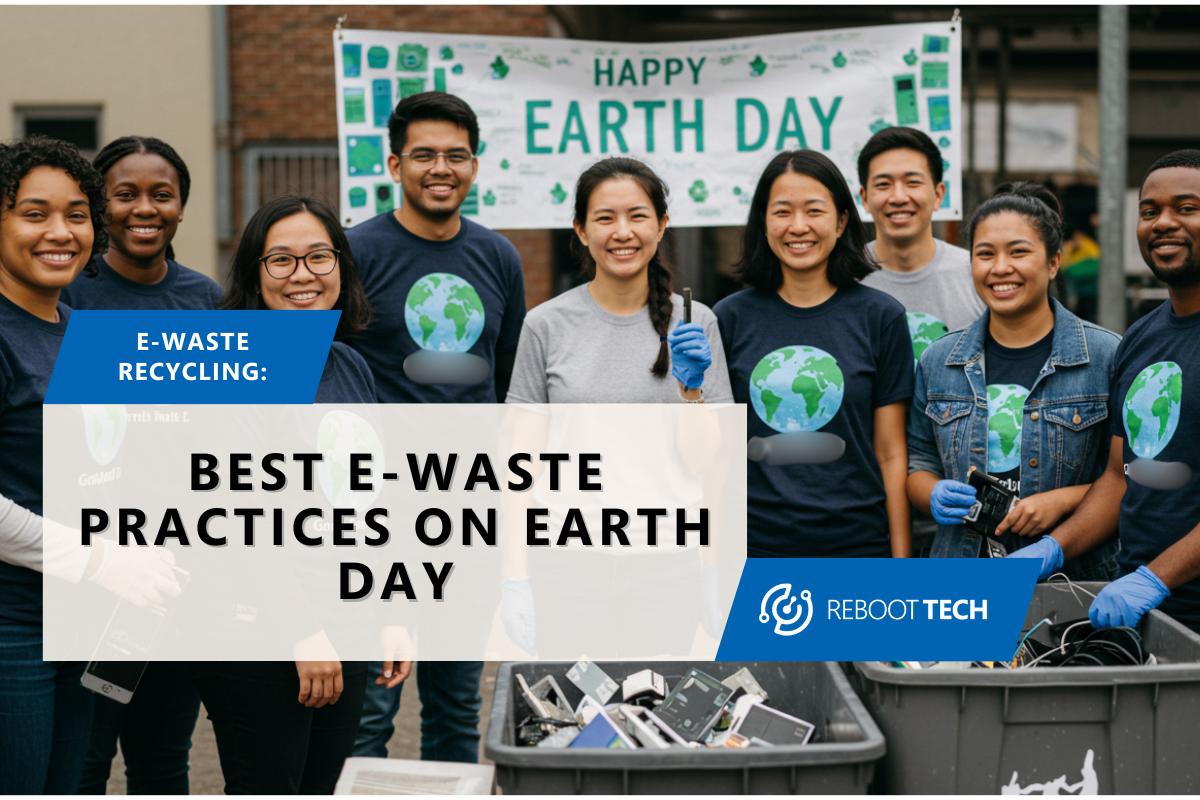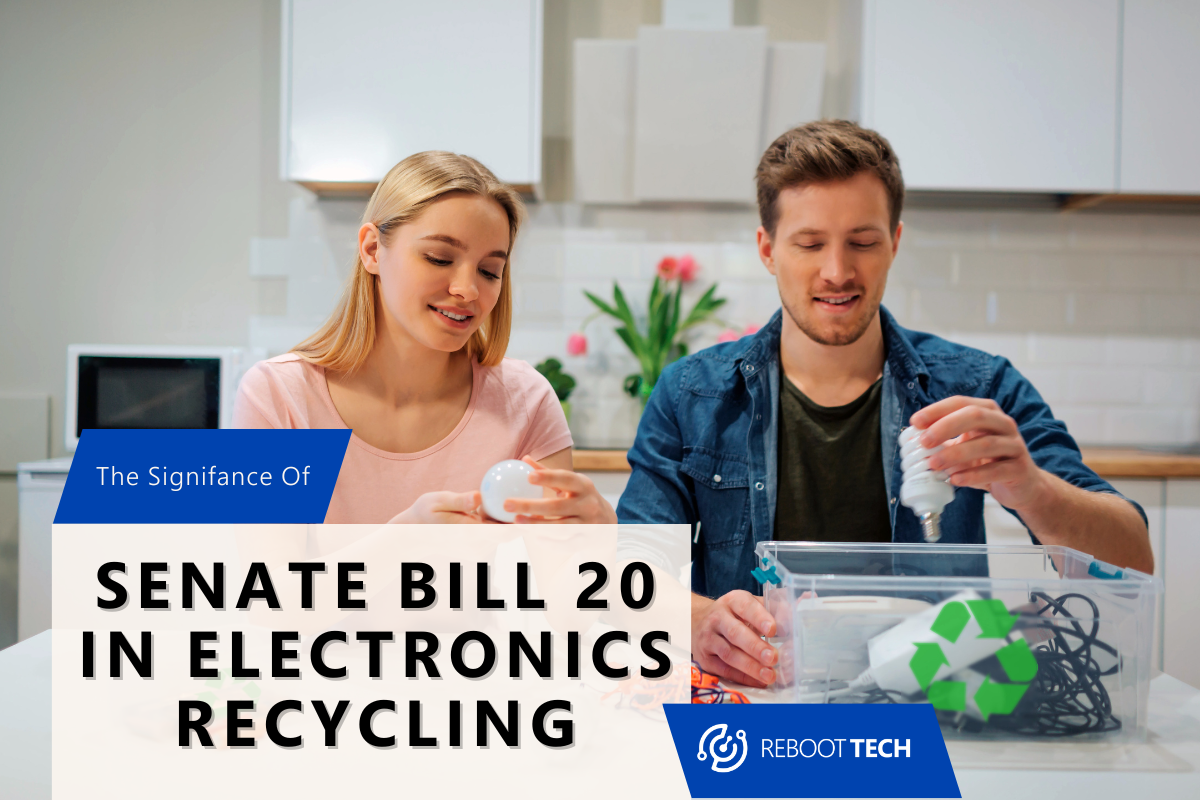
Understanding SB 20: A Quick Overview
Did you know that electronic devices in our homes contain harmful toxins? From our TVs and computers to our cell phones, these gadgets can cause health issues and contaminate the environment if they’re thrown away incorrectly.
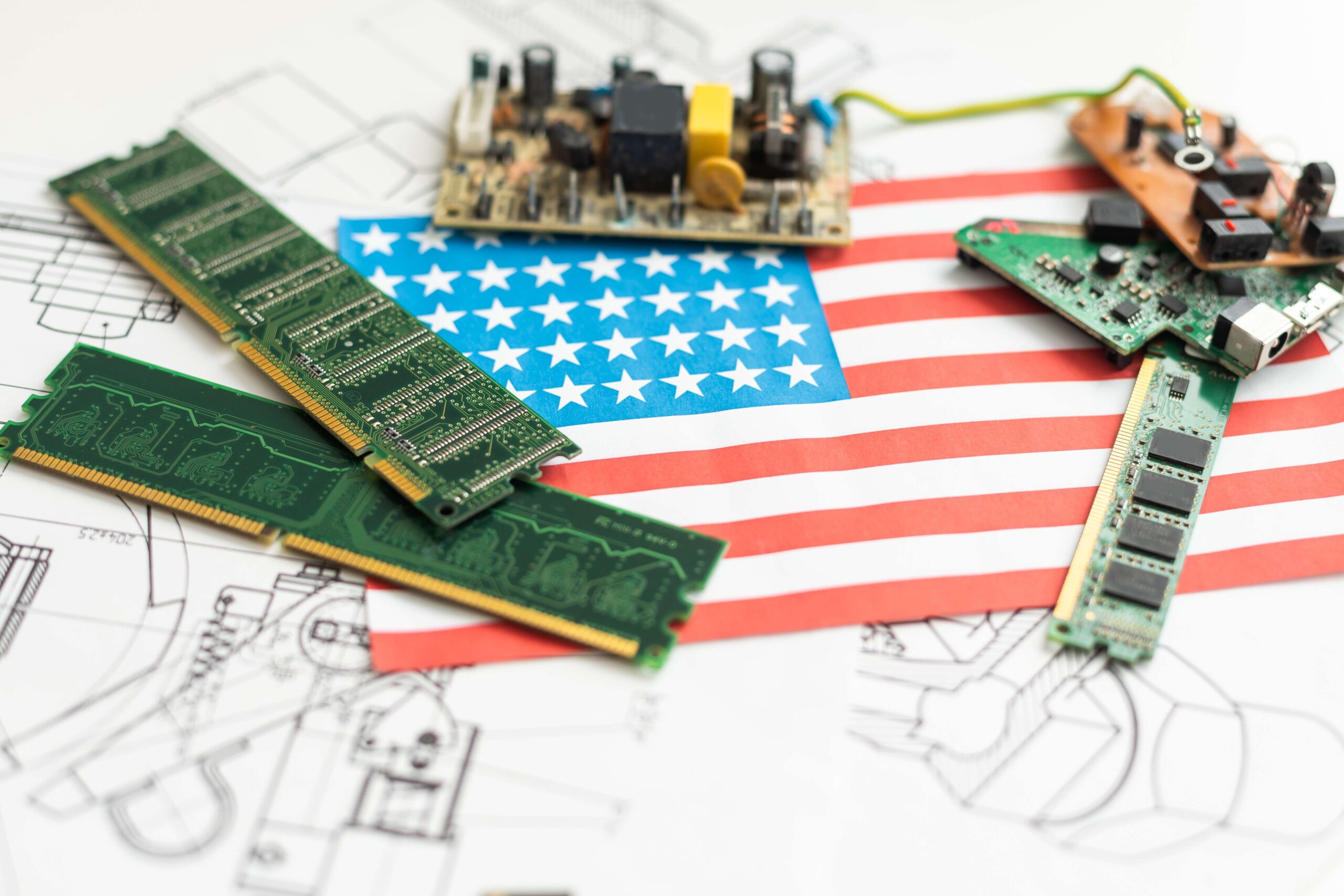
Thankfully, California’s Senate Bill 20 (SB-20) helps prevent this as they passed SB-20 in 2003 to address the environmental issues caused by dangerous electronic waste. This law makes it mandatory for manufacturers and sellers to handle the correct disposal of certain electronic products; it also encourages and finances the collection and recycling of e-waste.
When people buy covered electronic devices, they pay an extra fee upfront for recycling. This money supports recycling programs run by the California Department of Toxic Substances Control (DTSC) and the California Integrated Waste Management Board (CIWMB).
The Dangers E-Waste Creates
E-waste can leak out several hazardous chemicals such as lead, cadmium, and lithium. If we don’t deal with these dangerous substances the right way, they can hurt both people and nature.
Lead from e-waste can lead to very bad health issues such as neurological damage, and it can especially affect children. If lead leaks into the soil near a body of water, it can enter the food chain and create risks to human health after we consume it.
Cadmium, another toxic substance, can cause kidney damage and bone diseases if they’re released into the environment. If this chemical reaches groundwater, it can be consumed by people or lead to this substance in crops, which causes further risks for humans.
Lastly, Lithium. This is commonly found in lithium-ion batteries, which often leads to lithium dust or fumes, which can cause respiratory problems.
The Importance of SB 20 in Safe Disposal
SB 20 is important to get rid of these harmful chemicals and make sure that these chemicals never harm us or get to a bad point. Before 2001, most of our e-waste ended up in landfills, but this was later banned by The Department of Toxic Substances Control.
SB 20 says we have to recycle certain electronic items, which stops these materials from getting into the soil and water. This helps keep people healthy and saves our natural resources.
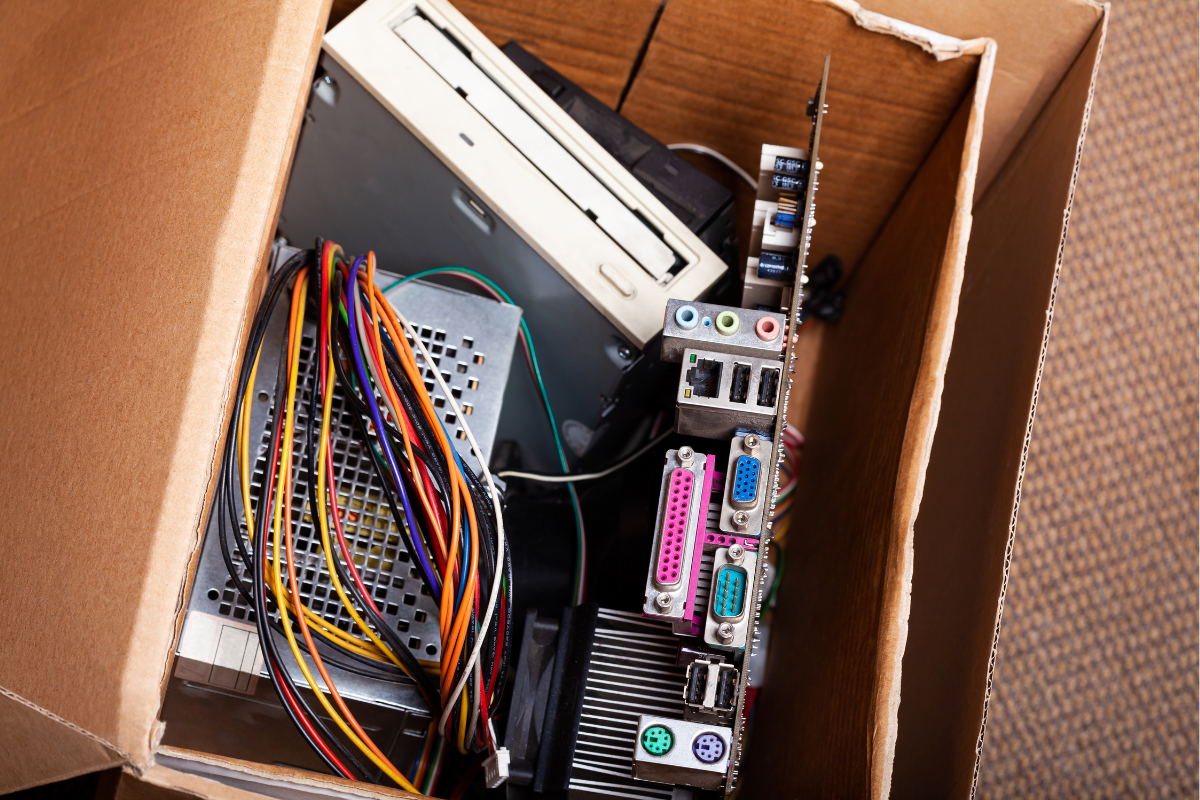
SB 20 California Units Covers
- Devices with cathode ray tubes (CRT devices)
- Standalone cathode ray tubes (CRTs)
- Computer monitors with CRTs
- Laptops with liquid crystal display (LCD)
- Desktop monitors with LCD
- Televisions with CRTs or LCD screens
- Plasma televisions
- Portable DVD players with
- LCD screens
The Costs and Benefits of SB 20 Recycling

SB 20 puts recycling fees on certain electronic gadgets, which helps pay for programs that recycle e-waste. The money from these fees goes to the Electronic Waste Recovery Account, managed by the Board of Equalization; this helps cover the costs of recycling SB 20 items.
The amount of the recycling fee depends on how big the screen is, with bigger screens having higher fees. It’s important to note that these recycling fees aren’t taxed, and people can recycle their SB 20 items for free at specific recycling centers.
Regulation and Challenges
Although SB 20 has helped handle e-waste in California, there are still issues with controlling the export of electronic waste. The national government doesn’t have clear rules on this, but SB 20 shows how to manage e-waste responsibly.
The law makes companies put labels on electronic items with dangerous materials and gives people info on how to get rid of them safely. Stores charge recycling fees for SB 20 items, and recycling centers get paid for recycling services.
The Road Ahead: Making E-Waste Management Better
Even though SB 20 was a big step in handling e-waste, there’s more to do to improve e-waste management. This includes creating stronger regulations to make sure all businesses are meeting them, educating people and promoting public awareness of what e-waste does to our environment.
By knowing about laws like SB 20, people can make greener choices and help keep our planet healthy.
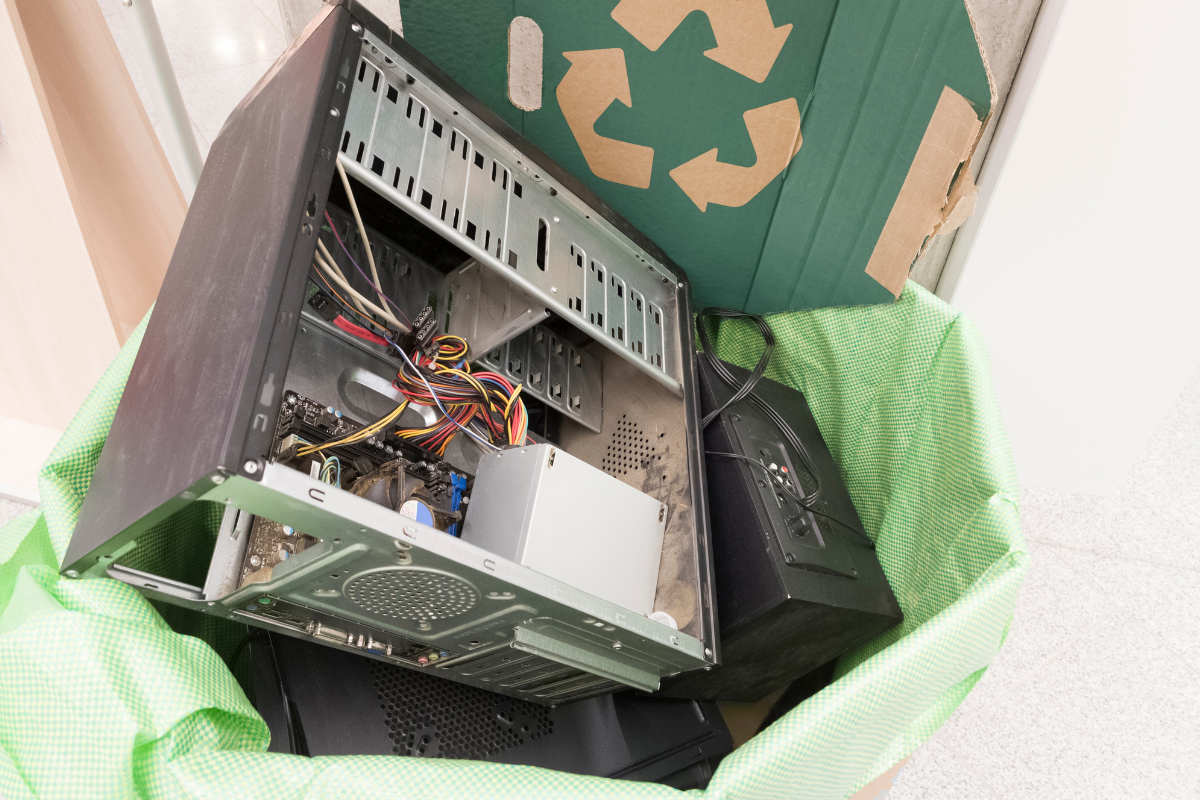
The Power of Being Informed
SB 20 has played a pivotal role in driving change and raising awareness about the environmental impacts of electronic waste. As consumers, understanding the implications of laws like SB 20 empowers us to make informed decisions and support initiatives that promote responsible e-waste management. Even though SB 20 is a good start, we still need to do more to make sure our planet stays healthy for the future.


